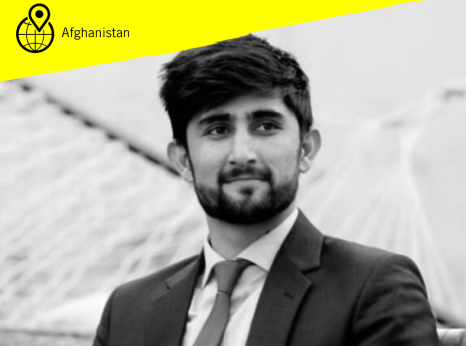Afghanistan: Journalist sentenced to two years for ‘propaganda’

Hamid Farhadi is a journalist who had been working with Etilaatroz, an independent newspaper operating in exile, at the time of arrest. Previously, he had worked with various research organizations and media channels such as Qara Consultancy, Tolo and former High Council for National Reconciliation. For the past three years, his reporting included news about ongoing developments and restrictions and repression imposed by Taliban de facto authorities on women and girls. It is believed that his recent articles about the ban on girl’s education for Etilaatroz were the reason for his arbitrary arrest and detention.
On 3 September 2024, he was arrested by members of the Taliban Ministry of Interior from his home along with his brother who was released after two days. At the time of arrest, Taliban soldiers surrounded him without an explanation nor providing an official arrest warrant and took him to Ministry of Interior. He has been sentenced to two years in prison. The Taliban alleged that Hamid Farhadi disseminated anti-regime materials, claiming they possess “substantial evidence’’.
He was unjustly presented to the Taliban court three times and then, on 19 September 2024 in absence of a defence lawyer, the court accused him of spreading propaganda against the Taliban de facto authorities due to his journalistic reports and sent him to Pol- Charkhi prison. On 28 March 2025, without explanation and prior information to Farhadi’s family, he was transferred to Bagram prison where the Taliban are keeping political prisoners. On 16 April 2025, his family was allowed to visit him for half an hour in presence of a Taliban soldier through a glass window.
Many journalists and human rights activists have condemned Hamid Farhadi’s arbitrary detention and have demanded his immediate and unconditional release.
Afghanistan now has a dwindling civic space where human rights defenders, including women protestors, grassroots organizations and groups, journalists, and political activists are perceived as political opponents. Afghanistan continues to remain one of the most dangerous places in the world for human rights defenders and journalists, where the Taliban continue to use excessive and lethal force to repress those opposing their draconian policies and arbitrary actions. The Taliban’s seizure of power coupled with the continued intimidation and abuse of human rights community, the political, humanitarian, and economic crises have forced human rights actors to seek international protection abroad.